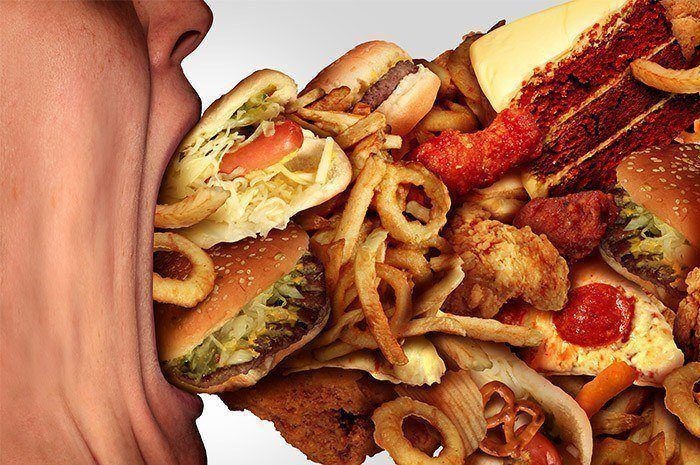Can't Stop Eating? Here Are 3 Less-Than-Obvious Reasons Why
Diet and portion control are two sides of the same coin. When portion sizes are methodically calculated, a wider array of food becomes available to eat. Even snack foods, pastas, and ice cream are not off-limits as long as their serving amounts are properly measured. More choices undoubtedly make dieting easier — but some foods have simply been designed to resist portion control, and sometimes, despite our best efforts, it's just impossible to stop eating.
For example, packaged snacks that melt in the mouth, like chips, cheese puffs, and certain candies, have a "vanishing caloric density," which means that the brain fails to recognize them as calories. If the brain doesn't recognize that the body is consuming calories, then it won't signal the body to stop eating. (Remember the old Lay's potato chip slogan "Bet You Can't Eat Just One"? There was science behind it.)
There are other reasons, however, that we overeat. Appetite can be linked to emotional and psychological cues that can be triggered by external stimuli such as the smell of grilled meat or freshly baked bread, or even just the sight of a fast-food restaurant that you used to frequent with a parent or loved one. But a step beyond emotional eating comes physiological eating. This form of uncontrollable binging is related to factors both in the brain and the body. Fortunately, if the factors behind overeating can be identified, they can also be overcome.
If you can't stop eating, here are three other possible explanations.
Dehydration
When the body doesn't get enough water, it can mistake dehydration for hunger. This occurs for a variety of reasons. A lack of fluid might cause the body to feel tired, which it mistakes for a lack of energy that needs to be compensated by an intake of food and calories. Alissa Rumsey, registered dietitian and spokesperson for the American Academy of Nutrition and Dietetics, says "This confusion happens in the hypothalamus, the part of the brain that regulates both appetite and thirst. When dehydration sets in, wires get crossed in the hypothalamus, leading you to grab a bag of chips when you really need a bottle of water."
Hormone Imbalance
A study with lab mice found that low levels of glucagon, a hormone produced by the pancreas that helps control blood sugar levels, encouraged the subjects to consume fattier foods and also to eat when they weren't hungry. Mice with higher levels of glucagon were found to have less of an appetite. This finding makes sense considering that "glucagon is sensed by nerve terminals...and the signal is transmitted to the brain where satiety is perceived," according to neurobiologist Stephan Guyenet.
Physical Dependency
Eating a bag of cheese puffs, a sleeve of cookies, or a pint of ice cream can demonstrate the addictive properties of food. But studies show that eating foods high in sugar and fat can actually release opioids in our brains, resulting in a physical dependency on junk food. There's also scientific evidence that sugar binging behavior can mirror the behaviors of addiction.
